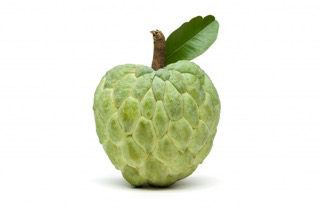

While custard apple, also known as Sugar-apple, Sweetsop, or Sitafal fruit, is not toxic to dogs, it is not recommended for their consumption. This is because the skin, seeds, leaves, and roots of the fruit contain alkaloids and hydrocyanic acid that can be harmful to dogs, especially when ingested in large amounts.
The flesh of custard apple is rich in vitamins A, C, and K, as well as minerals that can help boost immunity and fight inflammation. Additionally, the fruit is a great source of fiber that promotes good digestion.
It is important to note that custard apple seeds, skin, leaves, and roots are all potentially poisonous to dogs due to the presence of alkaloids and hydrocyanic acid. Furthermore, the seeds can also cause choking if ingested.
Given the difficulty of removing the seeds from custard apples, it is best to avoid feeding the fruit to dogs intentionally.
Custard apple, also known as Sugar-apple, Sweetsop, or Sitafal fruit, is a tropical fruit that is rich in vitamins and minerals. This fruit is native to South and Central America, though it is now grown in other regions around the world. While custard apples are not toxic to dogs, it is not recommended for their consumption, as the skin, seeds, leaves, and roots of the fruit contain alkaloids and hydrocyanic acid that can be harmful to dogs, especially when ingested in large amounts.
Although custard apple offers many health benefits, such as boosting immunity, fighting inflammation, and promoting good digestion, it is best for dog owners to avoid feeding this fruit to their pets. The seeds of the fruit present a choking hazard for dogs and ingestion of any part of the fruit in large amounts can lead to digestion problems, diarrhea, or vomiting.
Thankfully, there are plenty of other fruits and vegetables that dogs can enjoy, such as blueberries and sweet potatoes. These alternatives are affordable and easy to access in most grocery stores. If you notice any unusual behavior in your pet after consuming custard apples or any other fruit or vegetable, it is important to consult with your veterinarian immediately.
Have you ever offered your dog custard apple? What was their reaction? Remember to always be cautious when feeding new fruits or vegetables to your pets. Keep them healthy and happy!